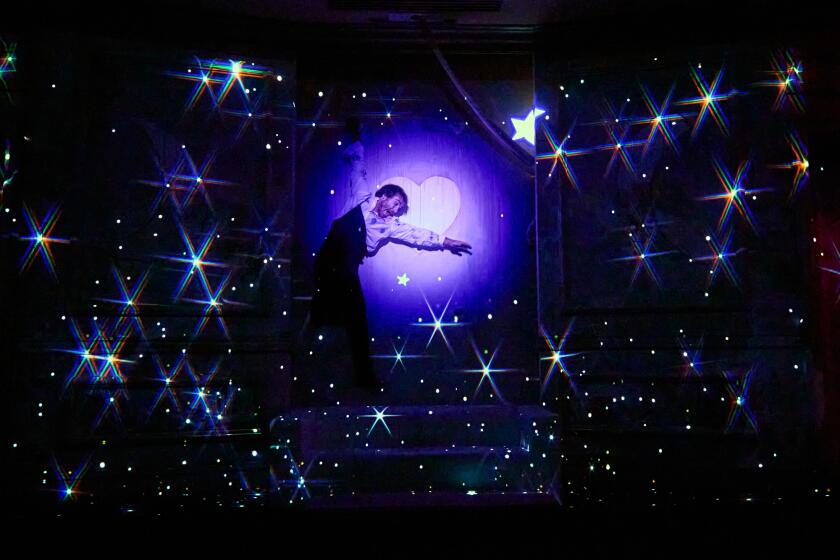MUSIC REVIEW : St. Clair Has Compelling Evening With Symphony
It was time again for another tryout Wednesday at Segerstrom Hall, and conductor Carl St. Clair made the most of the opportunity. As the latest candidate for the Pacific Symphony’s music director position, St. Clair, an assistant conductor for the Boston Symphony, was a compelling presence.
The first half of the concert, however, belonged largely to soprano Benita Valente, a late replacement for the scheduled Jill Gomez who had unexpected problems obtaining a visa. In three of Mahler’s “Rukert-Lieder,” Valente sang with intimate expressiveness and serene, gracefully woven phrasing. She moved on to Mozart’s “Exsultate, jubilate,” in a genuinely felt, joyous reading. Though her singing was not without minor lapses--a rough skip or two, some labored 16th-notes--her voice rang out with rich elegance and exuberance.
St. Clair accompanied with utmost attentiveness, with malleable phrasing and clear textures in the Mahler, and a gentlemanly neatness in the Mozart.
He had started the concert with a vigorous, scampering run-through of Mozart’s “Le Nozze di Figaro” Overture. He concluded with Tchaikovsky’s “Pathetique” Symphony. In the opening movement he brought huge contrasts to bear, with flexible, ever-expressive phrasing and bold tempo changes.
Despite this moment-by-moment emotionalism, St. Clair never lost sight of the overall musical argument, clearly shaping the first movement to a single conclusion, and the symphony as a whole into a single entity.
Thus the two middle movements were relatively straightforward--a restrained, steady Allegro con grazia, a muscular, brassy march. He renewed the melodrama with the finale, giving full sway to its melancholy, while still pacing the movement towards its more despairing conclusion.
The members of the Pacific Symphony proved highly responsive partners, playing with apparent energy and feeling, and a general tidiness of execution.
More to Read
The biggest entertainment stories
Get our big stories about Hollywood, film, television, music, arts, culture and more right in your inbox as soon as they publish.
You may occasionally receive promotional content from the Los Angeles Times.






